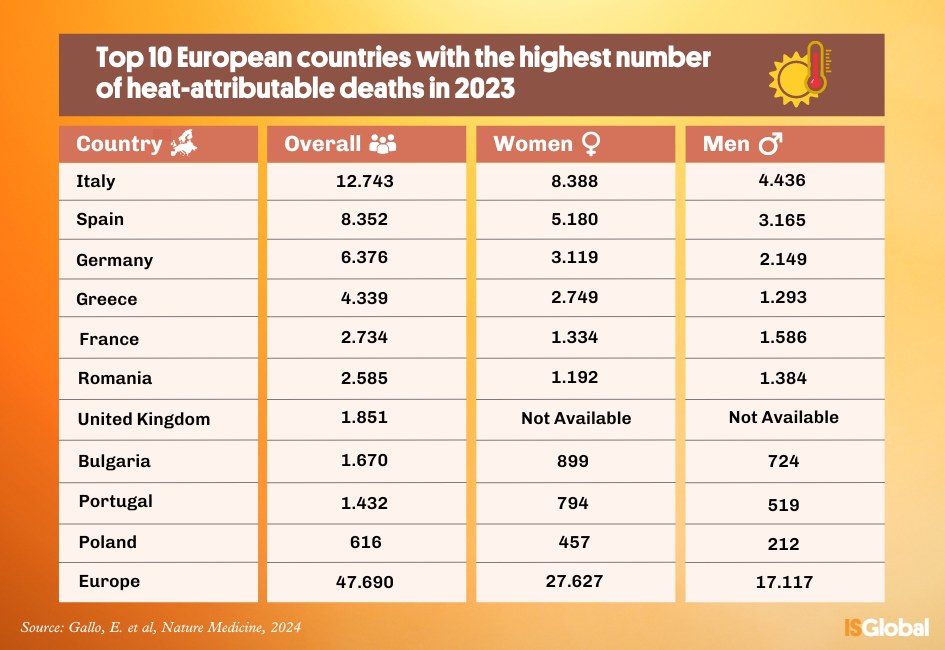More than 47,000 people died in Europe due to scorching heat in 2023, according to shocking new research.
As wildfires rage in Greece, a report by the Barcelona Institute for Global Health (ISGlobal) found countries in the continent’s south were hit the hardest by the deadly heat last year – the world’s hottest on record.
The study replicates the methodology used last year in another paper, which estimated that heat caused more than 60,000 deaths during the summer of 2022, which represented the highest heat related mortality burden of the last decade.
But researchers report that the vulnerability to heat of European societies has decreased over the present century, and estimate that without adaptation processes, the heat related mortality burden over the past year would have been 80 per cent higher.

‘Our results show how there have been societal adaptation processes to high temperatures during the present century, which have dramatically reduced the heat-related vulnerability and mortality burden of recent summers, especially among the elderly,’ said Elisa Gallo, researcher at ISGlobal and lead author of the study.
Highest Heat Mortality Rates
As climate change continues to increase temperatures, Europeans live in the world’s fastest-warming continent, facing growing health risks stemming from intense heat say scientists.
Adjusting the data for population, Greece, Bulgaria, Italy and Spain were the countries with the highest mortality rates related to heat. Italy recorded the highest number of deaths, with over 12,000, followed by Spain and Germany.
The results show a total of 47,690 estimated deaths in 2023 across 35 countries as a whole, of which 47,312 deaths would have occurred in the hottest period of the year (between 29 May and 1 October).
When accounting for the population, the countries with the highest heat related mortality rates were Greece (393 deaths per million), Bulgaria (229 deaths per million), Italy (209 deaths per million), Spain (175 deaths per million), Cyprus (167 deaths per million) and Portugal (136 deaths per million).
Joan Ballester Claramunt, Principal Investigator of the European Research Council (ERC) said: ‘In 2023, almost half of the days exceeded the 1.5°C threshold set by the Paris Agreement and Europe is warming at a rate twice as fast as the global average. Climate projections indicate that the 1.5°C limit is likely to be exceeded before 2027, leaving us a very small window of opportunity to act.
‘We need to take into account that inherent limits in human physiology and societal structure are likely to set a bound to the potential for further adaptation in the future.
‘There is an urgent need to implement strategies aimed at further reducing the mortality burden of the coming warmer summers, together with more comprehensive monitoring of the impacts of climate change on vulnerable populations.’









